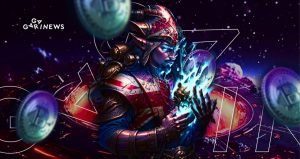Ethereum Loses Lead: Overview of the Top Smart Contract Platforms

Once Ethereum launched its Ethereum Virtual Machine (EVM) and smart contract platform, it faced little competition in the marketplace. However, its exorbitant transaction fees and continual network congestion spurred the emergence of alternatives. Now, we’re seeing the once ‘students’ outpace their ‘master.’
On this page
According to CryptoRank, Ethereum has ceded its supremacy in the smart contract market to other blockchains, those that offer more affordable pricing and quicker transactions. BNB Chain is currently recognized as the top platform based on the number of unique user addresses.
BNB Chain's platform claims approximately 300 million users according to the stats. Polygon follows with the preference of 240 million users, placing it as the second most popular blockchain. Ethereum, having lost its leading edge and with a tally of 230 million unique users, has slid down to the third spot. Tron and Fantom networks complete the top five, accounting for 155 and 55 million users respectively.
BNB Chain
The BNB Smart Chain (BSC) is a component of the BNB Chain ecosystem. It's a platform designed to facilitate the creation of smart contracts, compatible with Ethereum's Virtual Machine (EVM). BSC is leveraged to develop a variety of decentralized applications (dApps).
The inception of BSC was aimed at preserving the core blockchain's high data processing capacity while simultaneously integrating smart contracts into the BNB Chain ecosystem.
Being compatible with the EVM, BSC draws in a considerable number of Ethereum services and dApps to its platform. This is particularly appealing to those entities valuing fast transactions, a clear mempool, and a committed user base.
Polygon
Polygon is an L2 blockchain that operates within the Ethereum ecosystem. It carries over Ethereum's core benefits, such as a robust foundational blockchain, the universally recognized programming language Solidity, and a straightforward interface to create smart contracts, all with Ethereum Virtual Machine (EVM) support.
The Polygon development team has primarily concentrated on rectifying the principal drawbacks of Ethereum—namely, scalability issues and high transaction costs. Polygon presents several solutions, with one being particularly suited for smart contracts.
Polygon is a sidechain that supports EVM and utilizes a Proof-of-Stake (PoS) consensus algorithm. It's a great platform for rolling out smart contracts and Web3 projects aimed at broad audiences. Its security framework is backed by the Plasma protection mechanism and a wide network of validators.
Polygon's PoS platform aligns with all EVM standards, thereby enabling developers to effortlessly implement smart contracts on the Polygon chain. With its network speed hitting around 7,000 transactions per second, it is hundreds of times faster than Ethereum. The blockchain is notably flexible and offers extensive customization options to fulfill the requirements of each user or project. Plus, with an average transaction cost of just $0.002, it's extremely cost-effective.
Tron
The core layer of the Tron network is segmented between smart contract modules, account management systems, and consensus protocols. Tron executes a stack-based virtual machine, employing an optimized set of instructions. It utilizes Solidity for smart contract programming, a language widely recognized and favored by most smart contract and dApp developers. This strategy has motivated a subset of projects to transition from Ethereum to Tron.
As Tron facilitates the development of both smart contracts and individual wallets, developers can create a unique asset and specialized smart contracts for every dApp project.
Fantom
Fantom represents a comprehensive smart contract platform employing a Proof-of-Stake (PoS) consensus algorithm with asynchronous Byzantine Fault Tolerance (aBFT). This design bolsters network efficiency, accelerates transaction processing, and combines robust security with economical transaction costs.
Fantom Opera serves as the dedicated environment for crafting smart contracts, providing an open-source arena for decentralized applications (dApps) and smart contracts.
With its features and toolkit, Opera's network stands toe-to-toe with Ethereum. It supports the Ethereum Virtual Machine (EVM) and the Solidity programming language, conventionally employed for Ethereum's smart contracts.
The Fantom Foundation tailored the Opera network to transcend the restrictions tied to the first generation of blockchains, known for their sluggish block generation and validation times. On Fantom Opera, the initial transaction confirmation typically completes within just 1-2 seconds.
Final words
Interestingly, Ethereum didn't fall to ideologically different blockchains like Cardano or Stellar, but to those that are compatible with Ethereum's own Virtual Machine (EVM). This defeat is especially stinging as it suggests the “students” have surpassed the “teacher”. But then again, the essence of competition is to spur all market participants to continually improve. With Ethereum shifting from a Proof of Work (PoW) to a Proof of Stake (PoS) system, it remains to be seen if this move will help it reclaim its lost supremacy, particularly in the smart contracts sector.
The content on The Coinomist is for informational purposes only and should not be interpreted as financial advice. While we strive to provide accurate and up-to-date information, we do not guarantee the accuracy, completeness, or reliability of any content. Neither we accept liability for any errors or omissions in the information provided or for any financial losses incurred as a result of relying on this information. Actions based on this content are at your own risk. Always do your own research and consult a professional. See our Terms, Privacy Policy, and Disclaimers for more details.


























